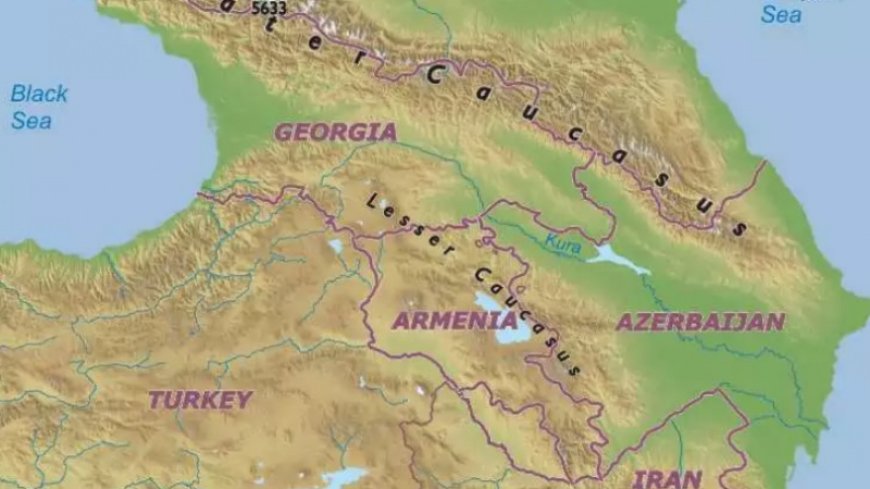Armenia's turn towards the West and its consequences in the Caucasus
Political developments in Armenia in recent years, especially after the second Karabakh war in 2020, indicate strategic changes in the country's foreign policy.

The signing of Armenia’s Comprehensive Partnership Agreement with the United States and the adoption of the law on accession to the European Union indicate that Nikol Pashinyan’s government is trying to reduce its dependence on Russia and move closer to the West. This change in political direction affects not only Armenia’s domestic political situation, but also regional equations and relations with neighbors and superpowers.
When discussing Armenia’s turn toward the West, it is impossible to ignore Russia. Moscow, which has been Armenia’s security guarantor for decades, took the opposite stance in the second Karabakh war. Contrary to Yerevan’s expectations, Russia refrained from direct military intervention, and the green light to return the occupied territories to Azerbaijan was a clear message to Armenia that Pashinyan’s policy of reducing Russian influence is dangerous for Yerevan.
There are different opinions about Russia’s position in the second Karabakh war. According to some circles, by allowing Azerbaijan to return its territories, Russia actually showed its dissatisfaction with the policy of the Pashinyan government.
On the other hand, some experts believe that Russia intended to maintain the balance of power in the region and prevent Armenia from becoming a completely dependent actor on the West.
Armenia’s turn to the West has a major impact on regional equations. Yerevan’s rapprochement with the US and the EU has not only increased tensions with Russia, but also provoked reactions from Turkey and Azerbaijan. This change in direction may also affect Armenia’s relations with Iran.
Iran, which has consistently opposed the presence of Western forces in the Caucasus region, is concerned about Armenia’s rapprochement with NATO and the EU. These concerns have been exacerbated by the increased Western military presence in Armenia, particularly after joint military exercises with the United States.
As a result of Yerevan’s pro-Western policy, relations between Armenia and Azerbaijan have also become more complicated. Azerbaijan, which enjoys the support of Turkey, continues to seek to consolidate its gains in Karabakh and normalize relations with Armenia. But Armenia’s rapprochement with the West may pose new challenges to peace talks between the two countries.
Armenia’s pivot to the West is the continuation of a long-term process that began with Nikol Pashinyan’s rise to power and intensified after the Second Karabakh War. This change in direction, while facing internal and external opposition, reflects Yerevan’s efforts to reduce its dependence on Russia and seize new economic opportunities.
For Armenians, improving economic conditions and living standards are an undeniable priority. This circumstance has forced them to continue to support the policies of the Pashinyan government, despite the heavy concessions to Azerbaijan. At the regional level, this turn of events could have a profound impact on the balance of power in the South Caucasus and relations between Iran, Russia, Turkey, and the West.
The ultimate outcome of these developments depends on the Armenian government's ability to manage the tensions and seize the new opportunities. In any case, Armenia is on the verge of entering a critical phase in its history, the results of which will be decisive not only for this country, but also for the entire Caucasus region.













































